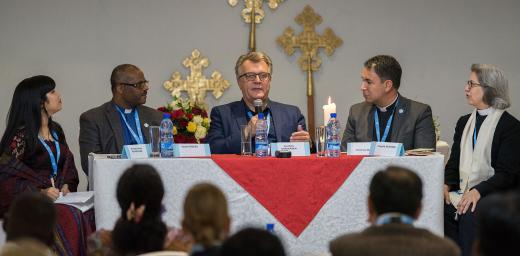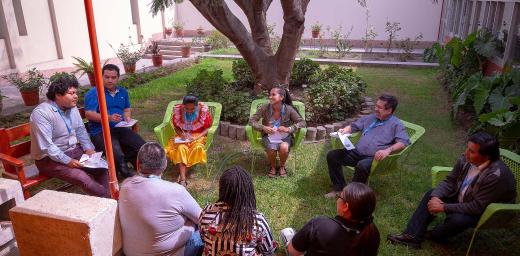The church: Always local and always universal
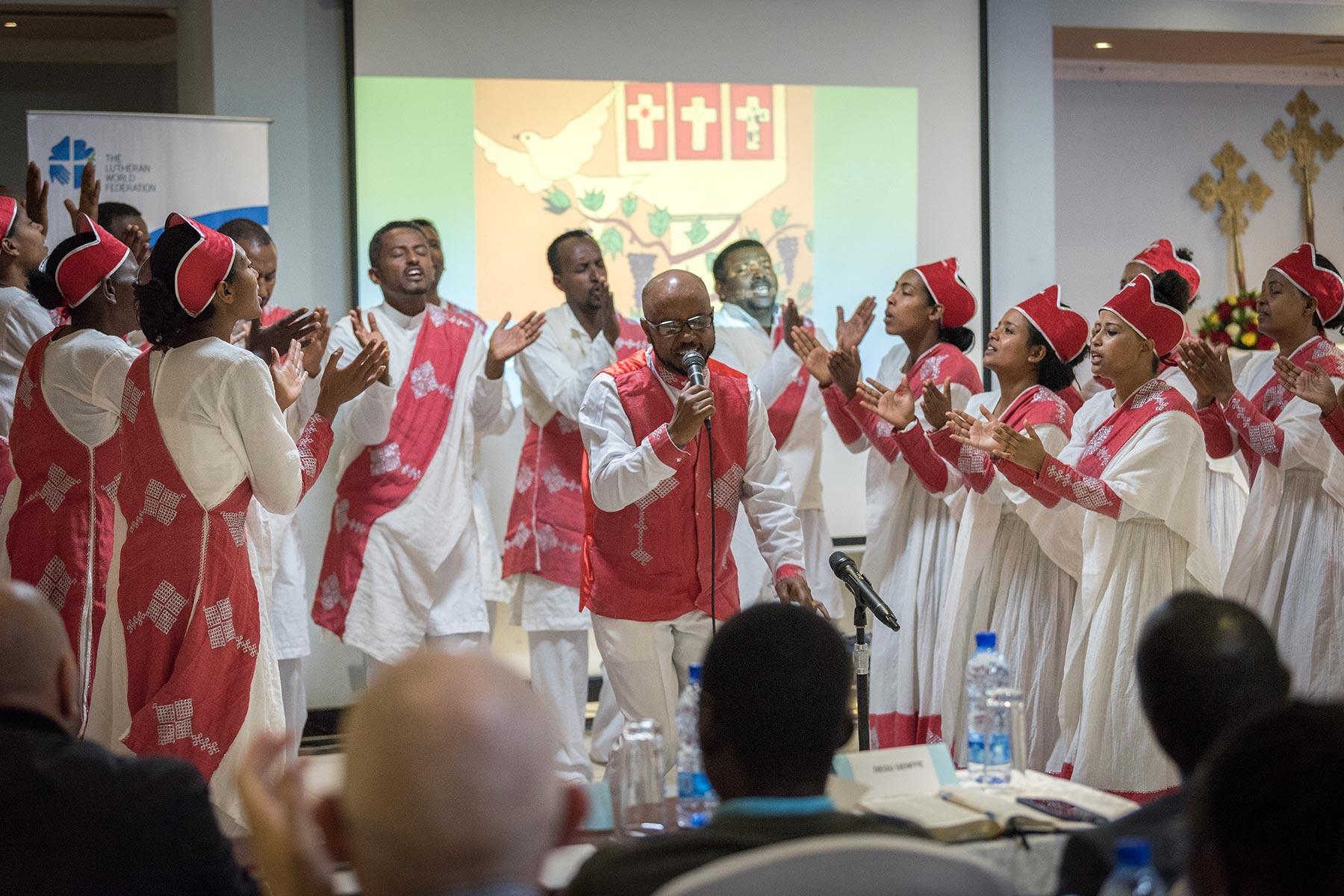
A vibrant performance by the Yetsedik Tsehay choir of the Ethiopian Evangelical Church Mekane Yesus set the stage, as the consultation âWe believe in the Holy Spirit: Global Perspectives on Lutheran Identities'Â opened. Photo: LWF/Albin Hillert
LWF consultation on Lutheran identities opens in Addis Ababa
(LWI) – “What does it mean to be Lutheran today?” is the question at the heart of a global consultation on Lutheran identities taking place in Addis Ababa, Ethiopia, this week.
The Lutheran World Federation (LWF) gathering launches a theological study process on how spirituality forms Lutheran identities and church engagement around the world today.
Welcoming the close to 70 participants from Lutheran churches around the world, Rev. Yonas Dibisa, president of The Ethiopian Evangelical Church Mekane Yesus (EECMY), said it was a great honor for his church to host them at a “timely and important consultation.”
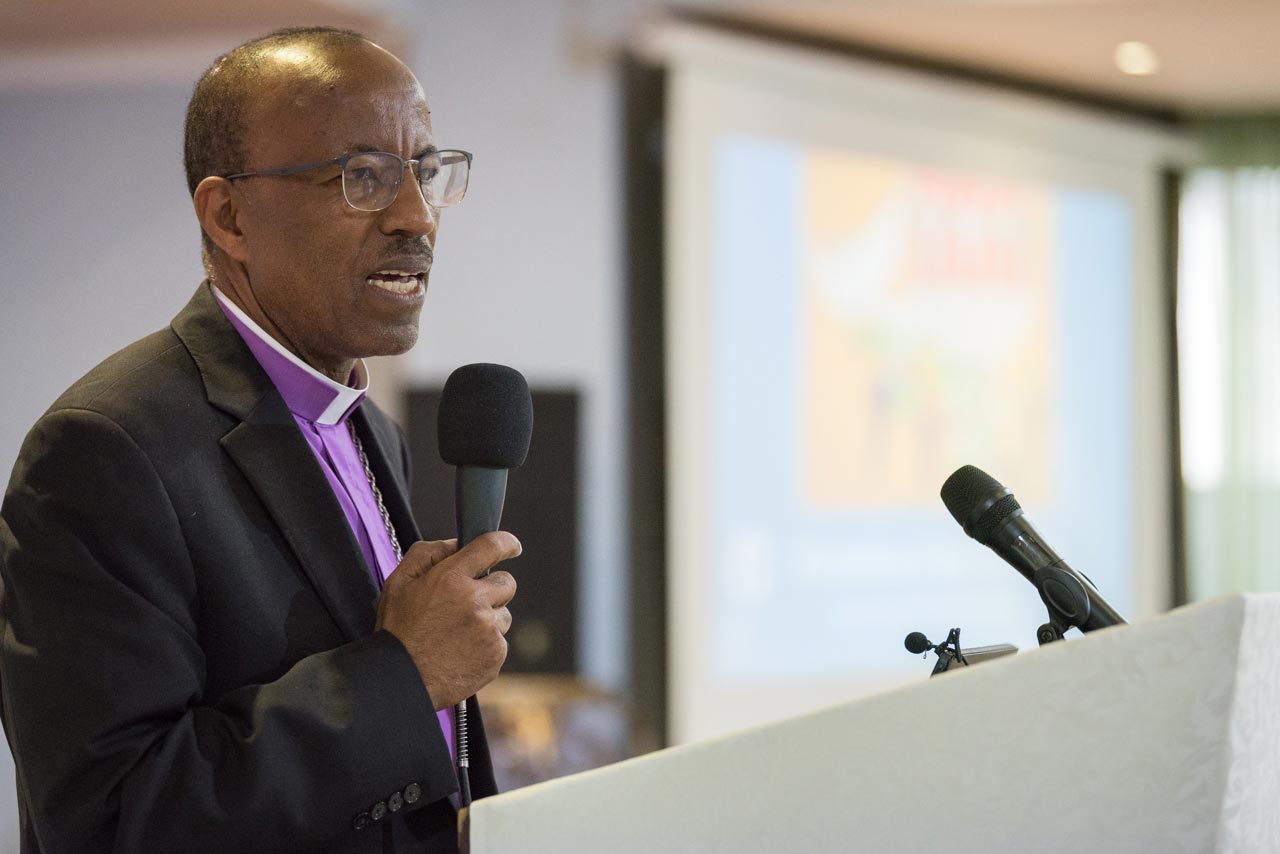
Rev. Yonas Yigezu Dibisa. Photo: LWF/Albin Hillert
We seek to understand Lutheran identity both from global and local perspectives.
The global church, he said, “is the result of the coming of the Holy Spirit at the first Pentecost.” In the ECCMY, “we seek to understand Lutheran identity both from global and local perspectives,” Dibisa noted. “We do this because we are Lutheran. We do this because we believe in the Holy Spirit, who gathers, sustains and sends the Church to the World.”
Referring to the EECMY’s beginnings through the work of Lutheran mission organizations more than 100 years ago, and its inception as a church body in Ethiopia in 1959, Dibisa emphasized the charismatic nature of one of the fastest growing LWF member churches. “We come together as disciples of Christ, and seek to hold each other accountable to the Word and the sacraments, and to our Lutheran doctrine.” The aim of the church, he added, “is to be spiritually vibrant while rooted and grounded” in this faith conviction.
A global citizen with local roots
Looking back to the 500th anniversary of the reformation, LWF General Secretary Rev. Dr Martin Junge highlighted that the Lutheran reformation is a global citizen. As the reformation spread around the world and churches took root in different contexts, they replicated traditions, piety and theological thinking that was offered to them, but also began to develop their own ways of being the church on the ground, he added.
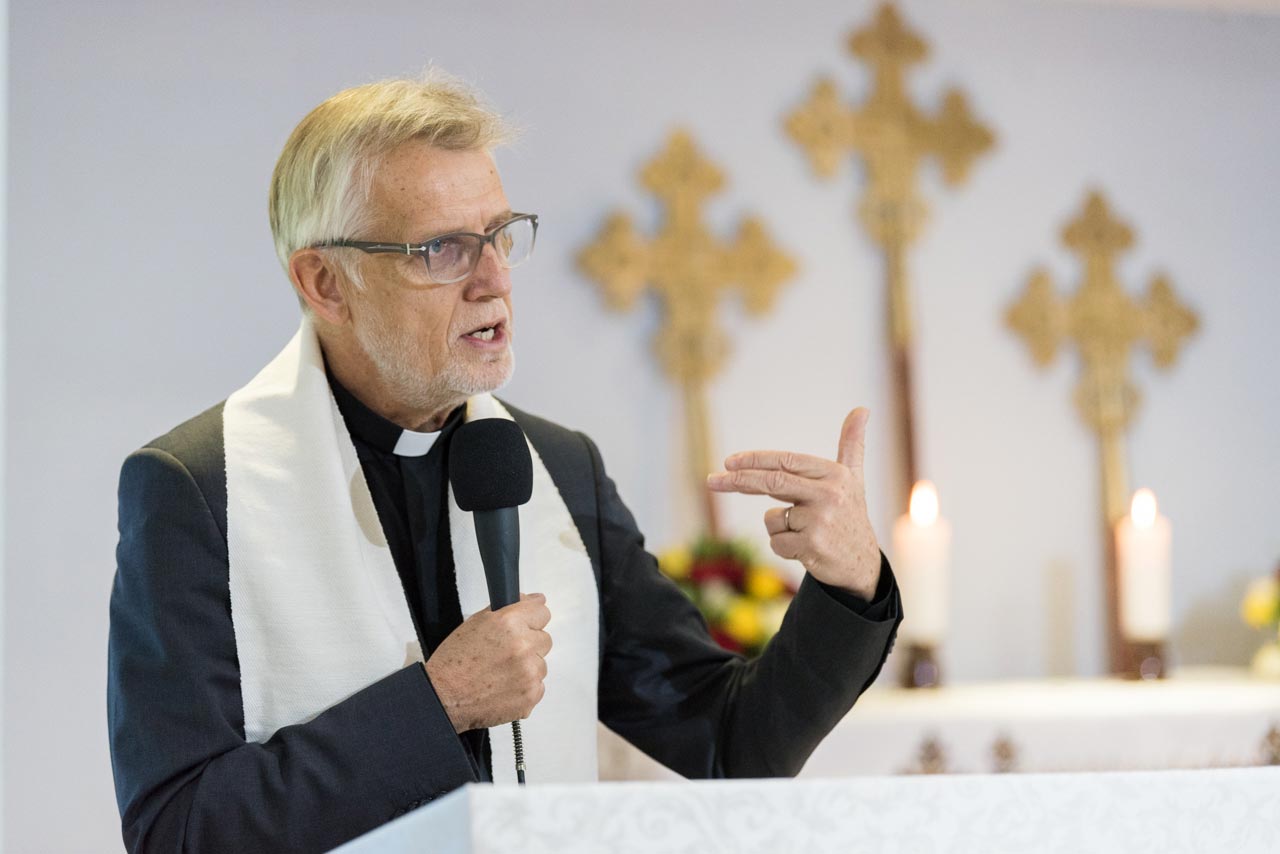
”Indeed, this is the day that the Lord has made,” affirmed the LWF general secretary Rev. Dr Martin Junge in his opening remarks. Photo: LWF/Albin Hillert
“The LWF as a communion of churches stands for and expresses the notion that the church is always local and needs to embrace its own context, yet is at the same time the church with others, expressing a global witness as the LWF does in the fields of diakonia, theological work, holistic mission and unity.“
“This consultation provides an opportunity for Lutheran churches to describe with their own words how they participate in God’s mission in their contexts,” Junge reflected. It is at the same time a space to articulate the global perspective that results from these narratives.”
“The resulting ‘choir of Lutheran voices’ will give important insights into what it means to be Lutheran churches today, informed by Lutheran theological heritage, and formed by their respective contexts,“ he concluded.
“We Believe in the Holy Spirit: Global Perspectives on Lutheran Identities” takes place from 23 to 27 October in Addis Ababa, Ethiopia. The meeting is hosted by The Ethiopian Evangelical Church Mekane Yesus (EECMY). LWF study processes provide an opportunity for a shared theological approach to identifying and addressing contemporary issues that the member churches face.


